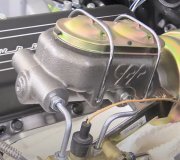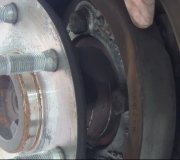Wednesday, November 11th, 2015 AT 8:11 PM
The other night I had to hit the brakes pretty hard, ever since then I can hear air leaking by at my feet and the brakes will work fine once I drive around for a little bit. But until then the pedal is hard and it has very little break action. I'm assuming I busted the diaphragm in the booster. Any other ideas or suggestions


